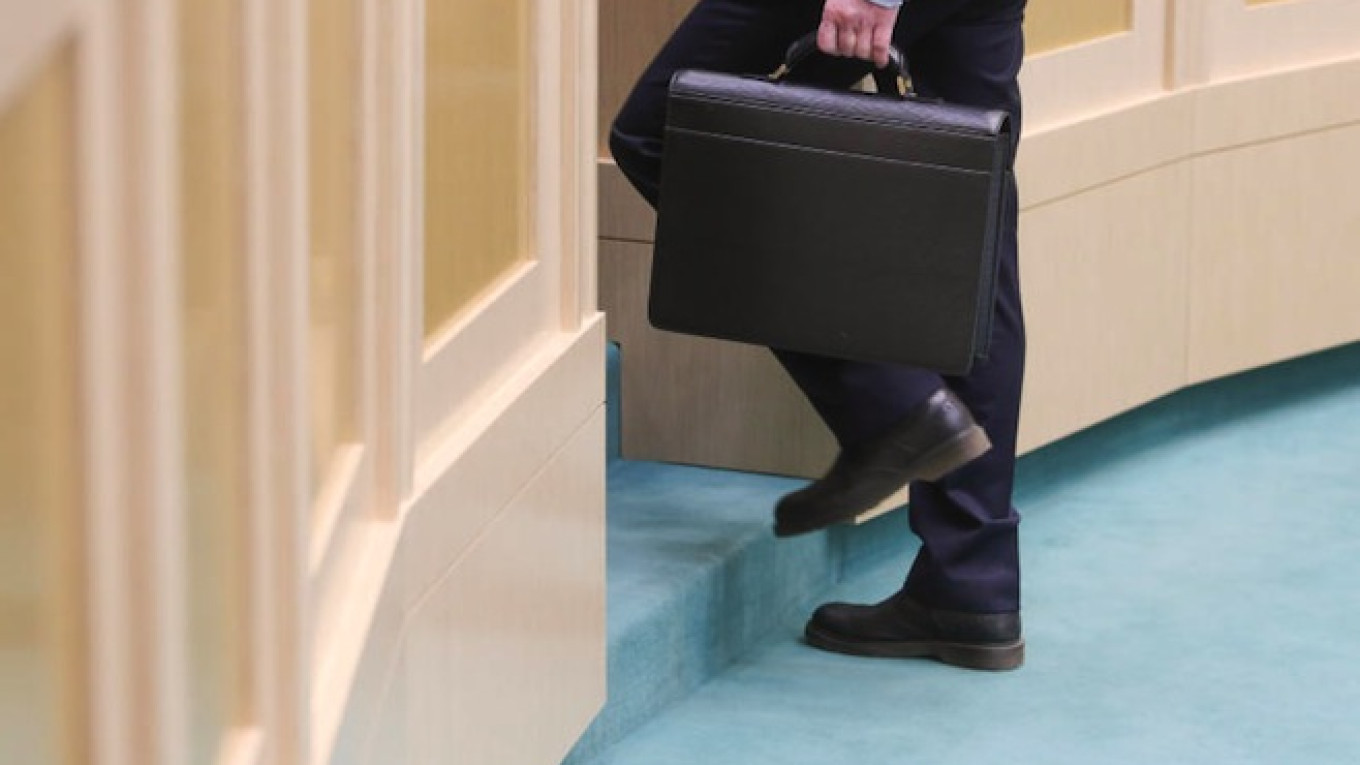The media frenzy surrounding the recent deportations of several suspected Russian spies — reminiscent of the theatricality surrounding Cold War-era spy swaps — says as much about Russia's and the West's newfound interest in publicizing espionage as it does about a marked increase in intelligence gathering activities, pundits told The Moscow Times.
Russia's Foreign Ministry said in a statement Monday that it had expelled a number of Polish diplomats after Warsaw kicked at least one Russian diplomat out of the country over "alleged activities incompatible with [diplomatic] status."
The dispute emerged amid reports of a similar issue with Berlin. Russia expelled a German diplomat from the Moscow embassy after a Russian diplomat working in Bonn was sent home amid speculation that he was a spy, Reuters reported Sunday.
The Czech Republic's Security Information Service reported that Russia had deployed an "extremely high" number of intelligence officers to its embassy in Prague last year, Reuters said in late October.
The latest series of expulsions and Prague's allegations that Russian spies have proliferated come at the height of tensions over the crisis in Ukraine, which have led to a seemingly intractable diplomatic and political impasse.
The deterioration of Russia's relations with the West and its belief that it is encircled by enemies may explain what appears to be a sharp increase in the country's intelligence-gathering activities, according to Grigory Pasko, a Russian military journalist who served time for espionage and high treason in connection with research for an article on environmental issues in the Sea of Japan.
"It is obvious that Russian special services have been working more actively," Pasko said. "Because of worsening relations with the West, government rhetoric has presented Russia as being surrounded by enemies. In circumstances such as these, intelligence services can request more funding from the state in order to increase activities. But this information, obviously, will never be made public."
Russia, understandably, has remained quiet about the activities of its intelligence services. In an uncharacteristic address to the Federal Security Service (FSB) board in February 2012, then-President Dmitry Medvedev said Russia had exposed 40 operatives and 158 agents working for foreign governments in 2011. But the Russian government, in large part, has kept silent on the strength and breadth of its own intelligence activities.
Oleg Gordievsky — a former KGB officer who served as a secret agent for the British Security Intelligence Service for more than a decade — told The Guardian in 2013 that 37 FSB officers and another 14 representatives of the country's military intelligence directorate were working in London at the time, claiming to have obtained the information through his contacts.
"There is no way of knowing or verifying the kind of resources that go into Russian intelligence work. And there is no way of making the process transparent," said Irina Borogan, the deputy editor of Agentura.ru, an independent security service watchdog. "But given the current state of Russia's relations with the West, it would not be surprising if spying activity has increased."
The expulsion of alleged Russian spies, and Russia's tit-for-tat diplomatic expulsions, have attracted the sort of widespread international media exposure that could never be reconciled with the secretive nature of espionage.
The West seems to have relinquished the discretion that once prevailed over the capture and exchange of suspected spies, according to Mark Galeotti, a professor of global affairs at New York University.
"I feel that Western countries are more willing now openly to out Russian spies and are also putting greater effort into catching them," Galeotti told The Moscow Times on Monday. "Once Western countries might have been happy to handle matters discreetly, simply indicating to Moscow that it was time particular diplomatic staff were rotated back home, now there is the will to accept the inevitable retaliation from Moscow and make these incidents public."
Russia also seems to be using the visibility of spying cases for its own purposes, likely to reinforce the notion that enemies have infiltrated its borders.
On Sunday, Kremlin-loyal channel NTV reported that former Latvian parliamentarian Aleksejs Holostovs had been caught spying on the country for Riga and the CIA.
In the NTV report, Holostovs — who had represented Latvia's Harmony Center party, which has close ties with Russia's ruling United Russia party — confessed to having worked against Russia.
"It's an odd case, especially because he [Holostovs] had worked for a pro-Russian party," Borogan said. "It looked like it was staged."
Contact the author at g.tetraultfarber@imedia.ru
A Message from The Moscow Times:
Dear readers,
We are facing unprecedented challenges. Russia's Prosecutor General's Office has designated The Moscow Times as an "undesirable" organization, criminalizing our work and putting our staff at risk of prosecution. This follows our earlier unjust labeling as a "foreign agent."
These actions are direct attempts to silence independent journalism in Russia. The authorities claim our work "discredits the decisions of the Russian leadership." We see things differently: we strive to provide accurate, unbiased reporting on Russia.
We, the journalists of The Moscow Times, refuse to be silenced. But to continue our work, we need your help.
Your support, no matter how small, makes a world of difference. If you can, please support us monthly starting from just $2. It's quick to set up, and every contribution makes a significant impact.
By supporting The Moscow Times, you're defending open, independent journalism in the face of repression. Thank you for standing with us.
Remind me later.


